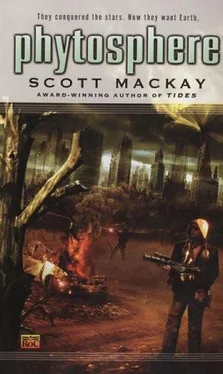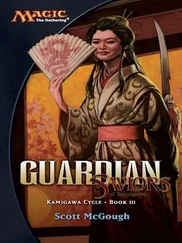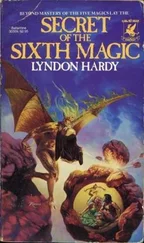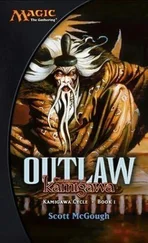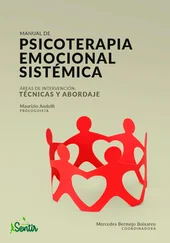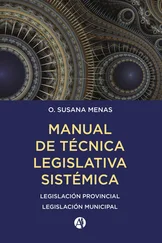He glanced over his shoulder as his mother and sister entered. He didn’t say a word, but his expression, at once solemn and concerned, with a knit to his tawny brow, revealed a boy who simply accepted, who had made the transition, who understood and was now resigned to the ways of this dark world.
He got up and lifted his Handheld Sport from his desk, a game-playing device that no longer worked because it got its recharge from sunlight.
He followed them down the hall to the basement stairs.
They descended the narrow, steep stairs into the shallow basement—more a storm cellar—and, as was so often the case these days, especially since the power had become intermittent, Glenda found herself in a world of touch. The banister was smooth and cool against her palm. The dank smell of the cellar permeated her nostrils. Her children creaked down the stairs behind her. Her foot hit the basement’s concrete floor with a light scuffing sound. She reached for her rifle, which she had leaned against the wall at the foot of the stairs.
And then it happened. What she had been dreading, but also what she had been expecting. The obvious outcome to all this buildup. Because hadn’t it been a long time now, and wasn’t the food situation just a bit much to take, especially when no one knew when it was going to end? Yes, the inevitable happened.
Gunfire—like the barking of dogs—erupted from next door. It was a sound she at first didn’t want to admit to herself, because it escalated the situation to an entirely new plane. The rifle shots made her skin crawl and her throat tighten, but at last she shook all feeling away because she knew she had to look after her children.
“Jake, will you hurry up?” she said in a small, panicked voice.
“I can’t see where I’m going.”
“Shhh.”
“Mom,” said Jake, “they’re not going to hear us over all that gunfire.”
How easily Jake accepted it all.
“Just move quickly and quietly to the back. Jake, grab onto my sleeve, and Hanna, you grab onto Jake’s.”
Forming a human chain, they walked in the darkness until they came to the back. More gunfire came from next door, and then a lot of shouting. Then there was one final shot, and all the shouting stopped.
They listened for a while. Nothing.
The phone rang upstairs. Her body stiffened. Who could that be? Maybe somehow Gerry had managed to get back, and he was phoning from somewhere on the “ph” phone. She was terrified because she thought the men next door might hear the ringing. She was eager to go answer so she could see if it was Gerry, but hesitant to move from her safe basement refuge.
At last, Glenda bolted from her crouched position on the floor and, feeling her way through the aisle of junk, came to the foot of the stairs. She crawled up the steep steps on all fours.
She came to the kitchen, rose to her feet, and got no farther than the table when someone shone a flashlight in through the front window. She froze and quickly backed up against the wall.
The flashlight beam penetrated through the living room to the dining room, and into the kitchen, where she saw it brightening first the cupboards, then the sink, then the floor. And all the while the handset part of the vidphone continued to ring on the dining room table, set to sing like a cardinal because she loved the sound of the cardinal so much.
The flashlight beam swung away, and its peripheral glow grew dimmer and dimmer, until finally the kitchen was dark again. She sprang from her hiding spot against the wall, and headed for the dining room table, where the phone continued to tweet like a cardinal. She got halfway there when the phone stopped ringing. Even though her good sense told her she had lost her chance, she lifted the phone anyway.
“Gerry?”
All she heard was silence.
She selected the call list to see who had phoned but the little screen remained blank. Who could it have been? Neil? Louise?
She rested the handset on the receiver and went downstairs, disappointed and close to tears. She felt her way through the dark to the back. Her kids sat crouched next to the downstairs refrigerator.
“Was it Dad?” asked Jake.
“I didn’t get it in time.”
Her kids said nothing.
She sat down.
“Are they still out there?” asked Jake.
“One came to the window and looked inside.”
All three lapsed into silence. She thought of all the other people hiding in the dark, in similar situations.
And then thought of the Western Secessionists, now making everything a lot harder.
At what point does a man lose faith in himself?
This question gnawed at Neil as he sat in his Coral Gables dining room with the rest of his family, listening to the gunfire outside. They sat in the dark. Candles flickered on the table. Ashley read a magazine on her waferscreen, the glow of the thing lighting her face. Melissa sat on the chaise longue painting her toenails pink. Morgan, his precious Morgan, had her chair pressed right against his. He had his arm around her, and she was scared—constantly frightened now, morbidly terrified, as if the dark were a monster that was just waiting for the chance to kill her.
At what point did a man lose faith, and realize that the problem he had decided to solve was simply too big to solve?
Louise gazed at him stoically, enduring the gunfire outside, but with a look in her eyes that told him it was unendurable. The dark outside was like a thing alive. It pressed in on them with the unstoppable force of a bad weather front. A day, a week, even two weeks, okay, they all knew it was going to be dark for a while. But a month? And now even more than a month? He was second-guessing himself constantly, and he knew it was because of the dark. He didn’t know what to tell his family about his progress, and he felt like he was letting Louise and the kids, the president, even the whole world down.
Outside, it was the haves against the have-nots. And damn those Western Secessionists. It wasn’t that there was no food; it’s just that there was no distribution. And everybody knew—yes, right down in their stomachs—that the existing food, the hoarded food, was indeed finite, and that next year’s crop was gone. People fighting over an ever-shrinking pile of food. The equation was simple. Why hadn’t the government prepared for it?
He got up and walked into the sunroom. He looked out across his swimming pool and saw flames reflecting on the water—a neighbor’s house burned up the street. Where were the firemen? He walked out the big French doors onto the patio. All his exotic shrubbery was dead. The ground stunk like rotten hay. He rounded the fountain and found the maid, Eva, boiling MREs on the barbecue because there was no electricity, at least not right now. He hoped that the neighbors wouldn’t smell them and come over for a handout.
He approached her. “Eva, I want you to know—you can go home to your people any time you like.”
Eva looked up. Her face was a mask of fear. She was neither young nor old, and yet her fear made her look ancient. “You want me to go?”
“Only if you want to.”
Even his manner of speaking had grown halting and unsure, and it was because he was always creeping around in the dark; he wasn’t a man who liked creeping around in the dark.
“What does ma’am say?”
“I just thought… a lot of people want to be with their families…”
“My family is in Colombia. And things aren’t so good there right now.”
The barbecue flickered and he saw the reflection of the flame dance on her face. The black pall of the phytosphere hovered in the sky. “You’re welcome to stay.”
Tears clouded her eyes. “Thank you, sir.”
As if he had offered her an ironclad guarantee that she would survive the phytosphere.
Читать дальше
